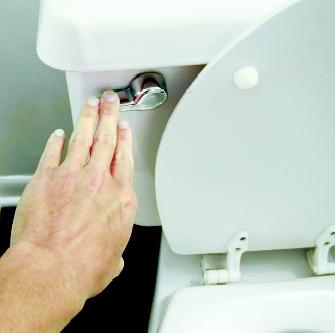A collective of of water industry groups, utilities, and ENGOs, led (in Canada) by the Municipal Enforcement Sewer Use Group, are banding together to demand a regulation that will identify “what is flushable”.
The partners–which include the Canadian Water and Wastewater Ass. and Municipal Enforcement Sewer Use Group (MESUG) in Canada and the Water Environment Federation, SUEZ, VEOLIA, and Sydney Water globally–are rallying behind an mission statement in the hoped of attracting more partners.
The document explains that non-flushable products cost local utilities 250 million dollars every year in additional maintenance, repairs, replacements, and transportation. The blockages that these products can cause in water infrastructure can cause overflows that threaten the local environment and wildlife.
The organizations have are rallying behind four statements:
- Until a wastewater industry approved standard for flushability is established, only the 3Ps–should be flushed.
- All products designed to come in contact with human waste and/or related germs while in the bathroom that have a high likelihood of being flushed into a toilet (including wipes and personal hygiene products) should be clearly marked as ‘non- flushable’. Such labelling should:
o Use the words “Do Not Flush” and a clearly understood symbol
o Be clearly visible to the consumer at point of purchase
o Be clearly visible for user at point of dispensing
o Include instructions for the product to be disposed of in the bin or garbage/trash
- We do not accept INDA/EDANA’s (manufacturer trade groups) Guidance Document 3 or any other manufacturing industry’s determination of ‘flushability’ at this time. Until there is a standard agreed upon by the wastewater utility industry, all such products should be labeled as “Do Not Flush” as laid out above.
- Key requirements for a wastewater utility industry standard include that the product:
a) breaks into pieces quickly;
b) must not be buoyant;
c) does not contain plastic or regenerated cellulose and only contains materials which will readily degrade in a range of natural environments.
For more information or to become a partner, contact Barry Orr, MESUG spokesperson at 519-661-4480 EXT 306 or [email protected].
To read more about how the movement formed, see Toward and International Standard for Flushable.









